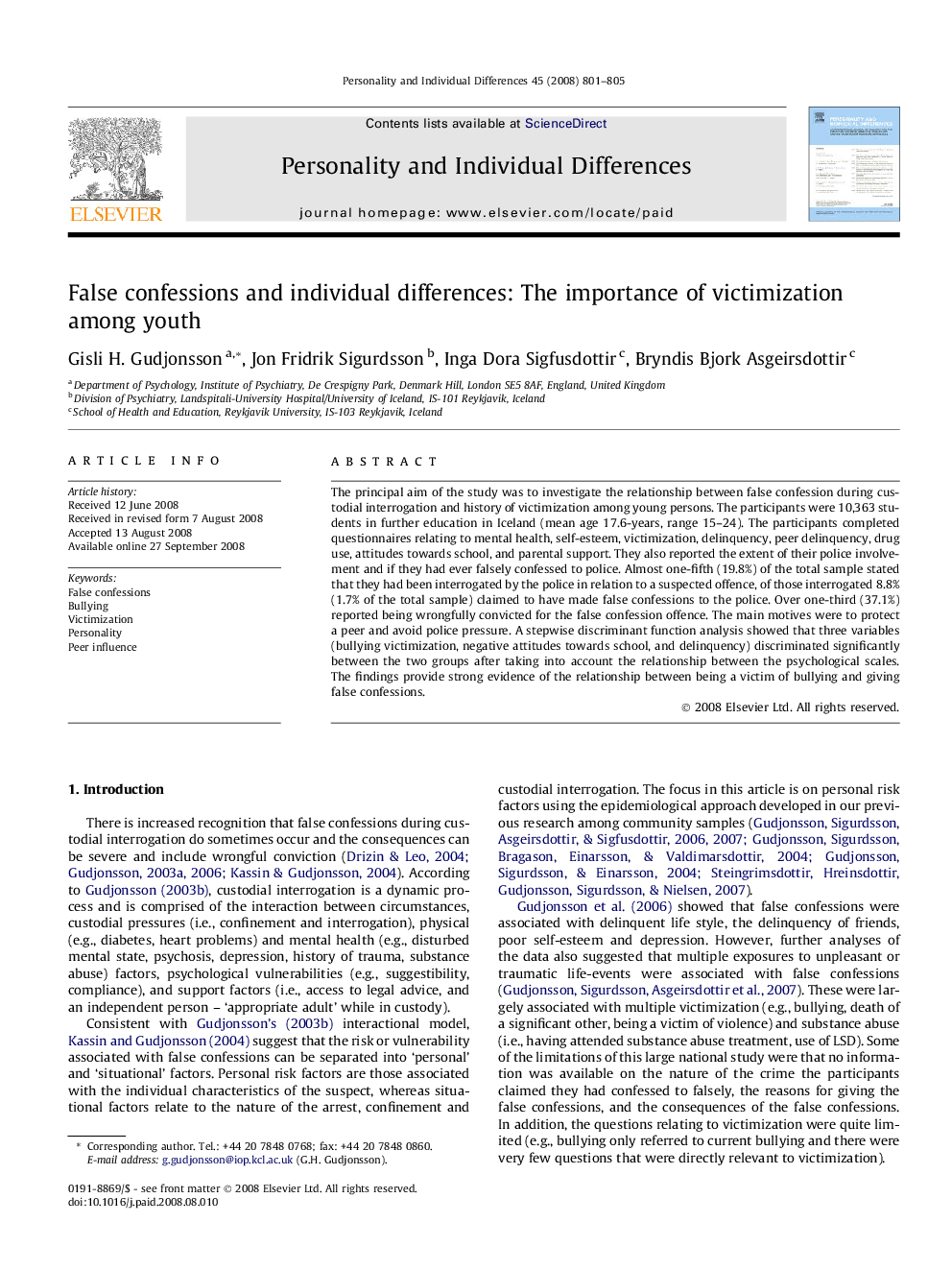| Article ID | Journal | Published Year | Pages | File Type |
|---|---|---|---|---|
| 892415 | Personality and Individual Differences | 2008 | 5 Pages |
The principal aim of the study was to investigate the relationship between false confession during custodial interrogation and history of victimization among young persons. The participants were 10,363 students in further education in Iceland (mean age 17.6-years, range 15–24). The participants completed questionnaires relating to mental health, self-esteem, victimization, delinquency, peer delinquency, drug use, attitudes towards school, and parental support. They also reported the extent of their police involvement and if they had ever falsely confessed to police. Almost one-fifth (19.8%) of the total sample stated that they had been interrogated by the police in relation to a suspected offence, of those interrogated 8.8% (1.7% of the total sample) claimed to have made false confessions to the police. Over one-third (37.1%) reported being wrongfully convicted for the false confession offence. The main motives were to protect a peer and avoid police pressure. A stepwise discriminant function analysis showed that three variables (bullying victimization, negative attitudes towards school, and delinquency) discriminated significantly between the two groups after taking into account the relationship between the psychological scales. The findings provide strong evidence of the relationship between being a victim of bullying and giving false confessions.
